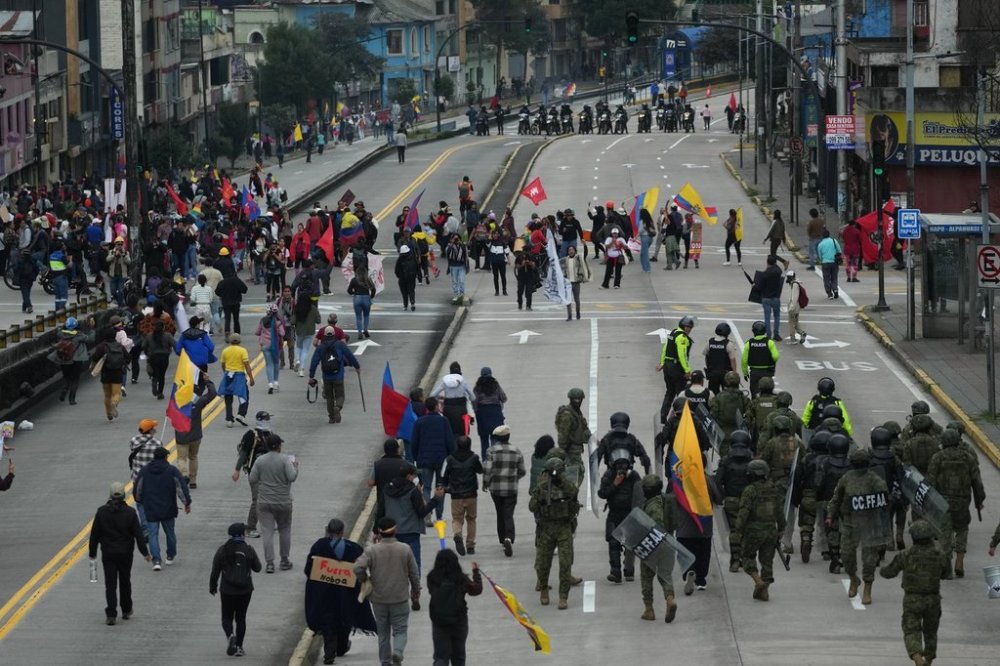Ecuador’s Indigenous alliance ends highway-blocking protests after military threat
Advertisement
Read this article for free:
or
Already have an account? Log in here »
To continue reading, please subscribe:
Monthly Digital Subscription
$1 per week for 24 weeks*
- Enjoy unlimited reading on winnipegfreepress.com
- Read the E-Edition, our digital replica newspaper
- Access News Break, our award-winning app
- Play interactive puzzles
*Billed as $4.00 plus GST every four weeks. After 24 weeks, price increases to the regular rate of $19.00 plus GST every four weeks. Offer available to new and qualified returning subscribers only. Cancel any time.
Monthly Digital Subscription
$4.75/week*
- Enjoy unlimited reading on winnipegfreepress.com
- Read the E-Edition, our digital replica newspaper
- Access News Break, our award-winning app
- Play interactive puzzles
*Billed as $19 plus GST every four weeks. Cancel any time.
To continue reading, please subscribe:
Add Free Press access to your Brandon Sun subscription for only an additional
$1 for the first 4 weeks*
*Your next subscription payment will increase by $1.00 and you will be charged $16.99 plus GST for four weeks. After four weeks, your payment will increase to $23.99 plus GST every four weeks.
Read unlimited articles for free today:
or
Already have an account? Log in here »
QUITO, Ecuador (AP) — The Indigenous alliance that organized demonstrations blocking highways in Ecuador over the past month said Wednesday it was ending the protest following President Daniel Noboa ’s threat to use the military to clear blockades.
The Confederation of Indigenous Nationalities of Ecuador had called for a national strike after Noboa ended a subsidy for diesel. The fuel is used for tractors in agricultural areas, for trucking and for many buses used by the country’s poorest people. Prices have risen from $1.80 to $2.80 per gallon.
The blockades have halted traffic in parts of the country, having a huge economic impact.

The alliance’s president, Marlon Vargas, said in a video posted on social media that ending the protest was a difficult decision, but was taken “to protect the lives of our people.”
Noboa earlier Wednesday said in an interview that he would use the military to clear blocked highways.
Gen. Henry Delgado, of the joint chiefs, told reporters that troops were ready to clear roadways in Imbabura province, site of the most disruptive blockades.
“It can’t be that a number of Ecuadorians … want to impose themselves on 18 million Ecuadorians. We’re not going to allow that,” Delgado said.
Vargas said Indigenous groups would continue to resist.
“Mr. President, this strike could have been avoided if there was dialogue and sensitivity before imposing decisions that affect the poorest,” he said.

